The College of Business and Management Sciences Research Ethics Committee (COBAMS-REC) has today (23rd September 2022) concluded a 4-day training on Human Subjects Protection (HSP) hosted at the College’s School of Business Seminar room. The training was conducted from 20th-23rd September 2022.
This training was recommended by the Uganda National Council of Science and Technology (UNCST) Accreditation Committee (UNAC) following the site monitoring visit that was conducted on the 1st of June 2022.
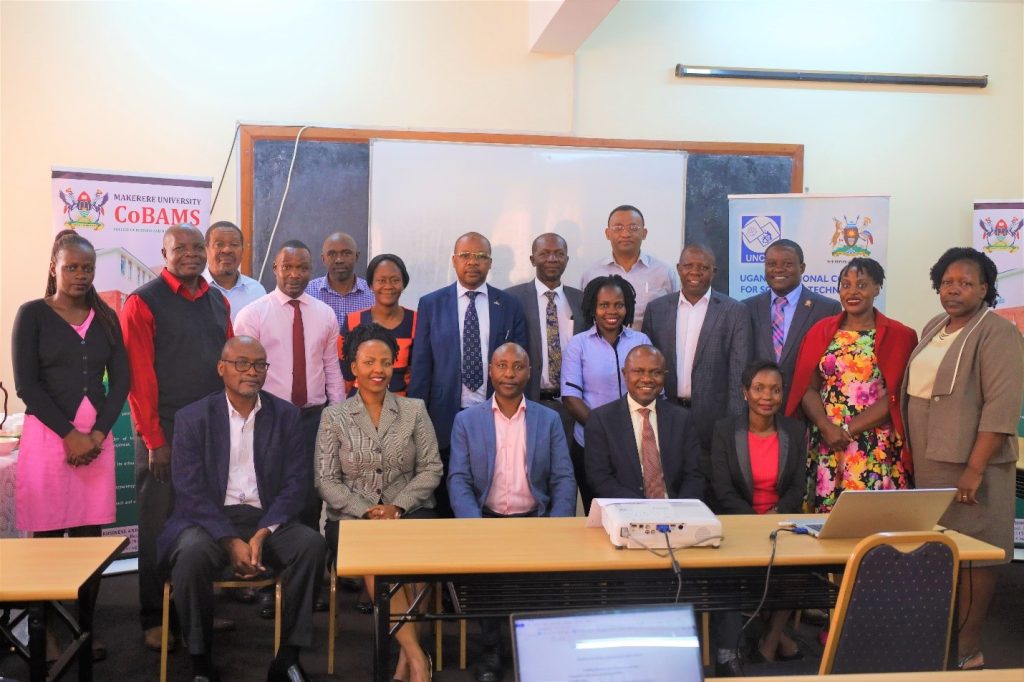
The training was officially opened by Ms. Winfred Nazziwa the head UNCST research compliance unit on 20th September 2022. She congratulated the members upon reaching the final stage of gaining accreditation. She thanked them for sparing some time off their busy schedules to attend the training while emphasizing how crucial this training is to all REC members. She informed the REC members that they shall be subjected to a pre-test and post-test for which they will obtain a certificate of participation.
Ms Nazziwa informed the REC members of the new COVID-19 realities and the increase in commodity prices to avoid budget impropriations. She also informed the members that UNCST has so far accredited thirty (30) RECs in Uganda.
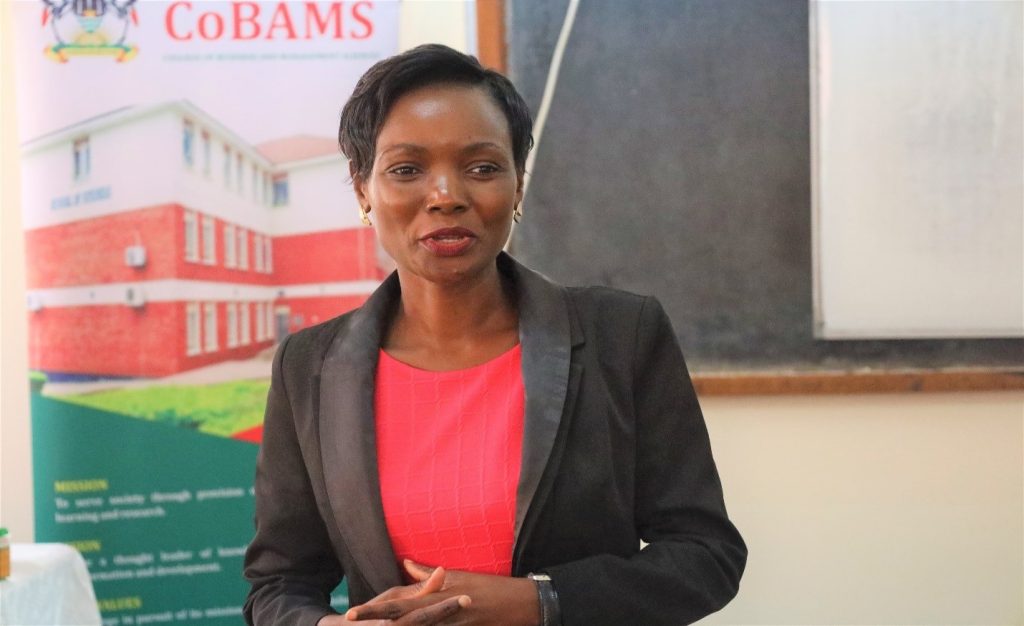
Ms. Winnifred Nazziwa said that there are a number of trainers with varying backgrounds and experiences among them include:
- Prof. Noah Kiwanuka from the School of Public Health
- Dr. Fred Nakwagala from Mulago Hospital
- Ms. Maria Musisi from Makerere University John Hopkins University. (MU-JHU)
- Ms. Irene Semakula Seryazi from UNCST
- Ms. Laura Nyero from UNCST
- Dr. James Wasike
In his remarks, the Chair, Assoc. Prof. Walakira, welcomed all the REC members and thanked them for committing time to attend the mandatory 4-day HSP training. He further thanked the College Principal for the appointments and for trusting the committee to carry on the core function of protecting and safeguarding the rights and welfare of the research participants.
While giving his opening remarks, the Principal CoBAMS, Professor Eria Hisali, acknowledged the Uganda National Council of Science and Technology (UNCST) for facilitating this training and assured attendees of how his leadership is working around to see other structures set up at the college that will call for new expertise, skills, and the knowledge hence urging researchers to always engage in such training workshops. He thanked all the REC members for honoring the invitation and accepting the appointments to be part of a noble cause that is in line with Makerere University’s vision of being research-led.
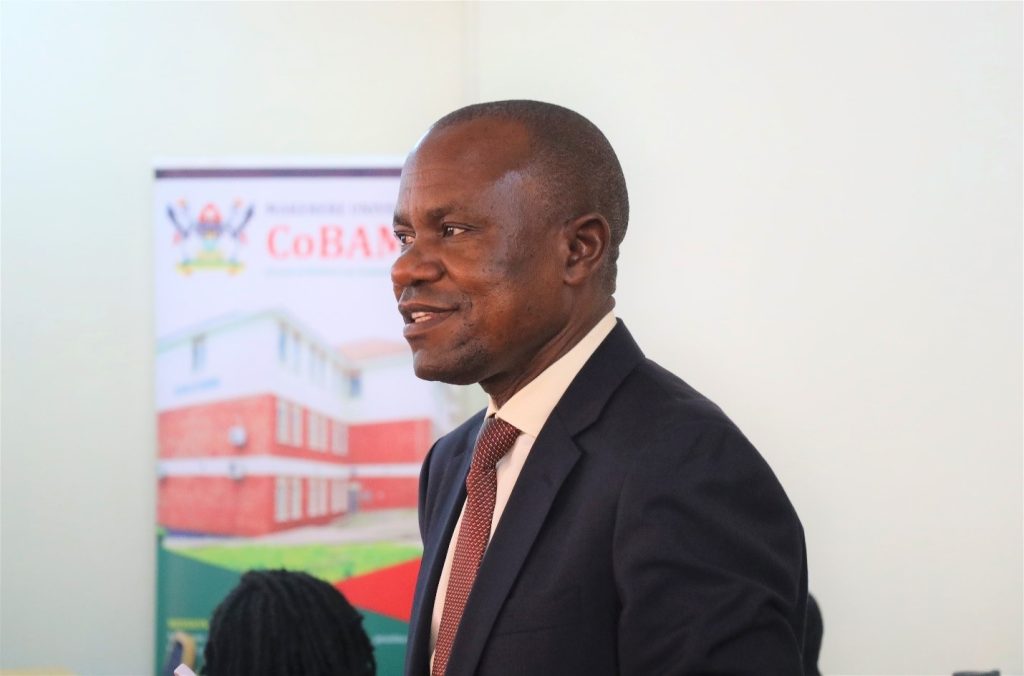
He further cautioned the REC members to always pick interest in Human Participant Protection and confidentiality as it is not only professional but also human. “My office shall make sure that you are facilitated when needed and always reach out in case of any administrative support needed”. He further thanked the Vice Chair Dr. Allen Kabagenyi for spearheading the process of establishing a Research Ethics Committee at the COBAMS and Assoc. Prof. Eddie Walakira for accepting to lead COBAMS-REC.
The Human Subject Protection (HSP) Certificate Training.
This training was composed of;
- Human Subject Protection (HSP). This course guides REC members to review research protocols and conduct all the REC activities while protecting the best interests of the human participants.
The REC members were also supposed to be trained in National Research Information System (NRIMS) and UNCST-Credit Point system. However, due to some circumstances, these two trainings were postponed and we are yet to confirm when they shall be conducted.
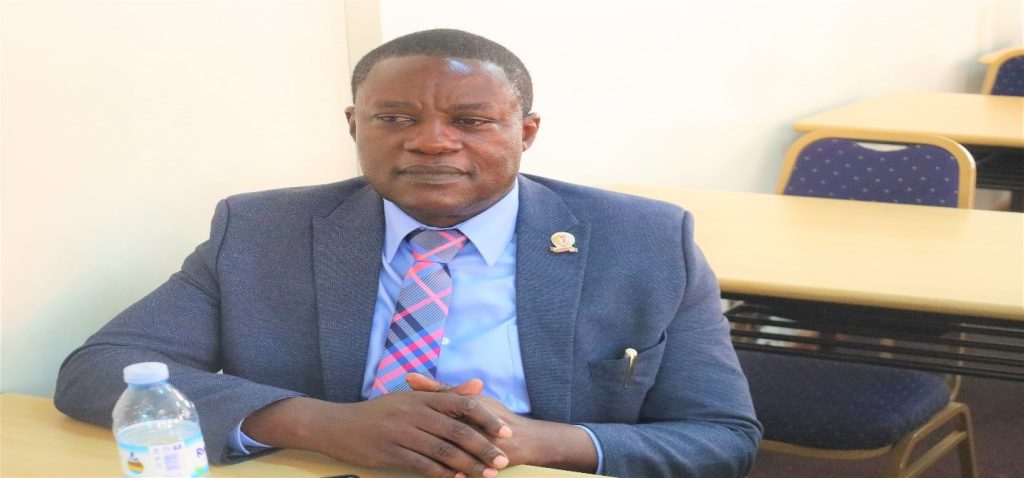
The training focused intensively on how important informed consent is to both the researchers and participants because it protects researchers in case of any lawsuit as well as proof that the participants voluntarily accepted to participate in an even study. In the training, the facilitators also focused on documentation in research, what entailed a good ethical review and how it can be achieved, and discussed the responsibilities of the different research stakeholders. The training emphasized how important it is to declare a conflict of interest and ways to manage it. The trainers also pointed out the significance of reporting of protocol events to the regulatory bodies and ensuring compliance with the approved protocols through monitoring of studies.
The HSP training is very important to all researchers and REC members conducting and reviewing research respectively. This is because it creates more awareness about the reviews of the research protocols to ensure it is done in an ethical and appropriate manner. It offers guidance to researchers and scientists in planning and conducting research following sound scientific and ethical principles. HSP also guides REC members on the use of the online submission system (NRIMS) to ensure efficiency in the research management as well as provide guidance on how to gain credit points for members for the purpose of their eligibility.
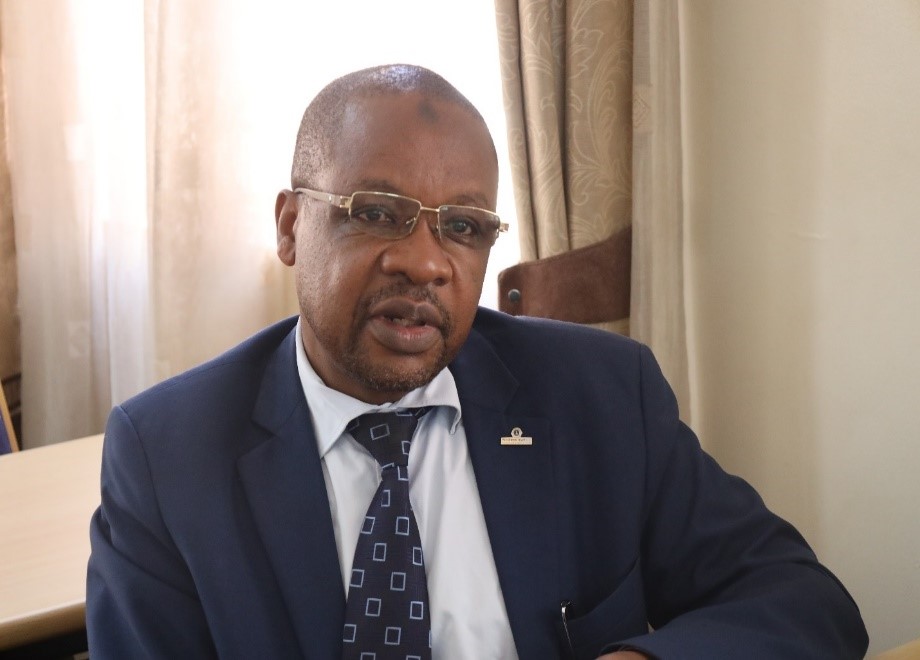
Among the UNCST team was Dr. Fred Nakwagala who is the Clinical Head of the Directorate of Medicine at Mulago Hospital and chairperson for the REC forum in Uganda, who urged trainees on the necessity for Research regulation to avoid disaster in the monitoring of protocols and asked them to always engage UNCST in case of any guidance needed.
Closing remarks
At the closing ceremony, the REC members, represented by Mr. Muyingo Martin, the community representative appreciated the trainers from UNCST, saying the training had been very beneficial to all and was timely at the time when the REC is starting its activities.
Ms. Nazziwa from UNCST called on all research institutions to institute research ethics committees. She called for proper motivation of REC members by the institution and also encouraged what she called “twining”. This, she said involves one REC partnering with another older REC in an effort to share the experiences and learning.
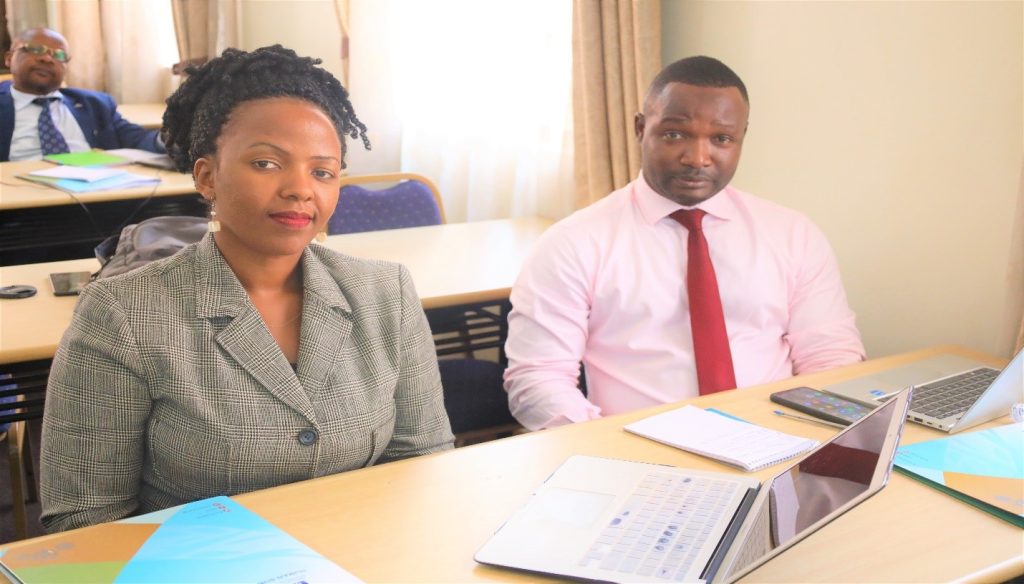
In his closing remarks, Prof. Hisali said the college had committed funds to the training and capacity development of its people in an effort to meet her strategic plan. He encouraged the REC members to do things differently so that the COBAMS-REC can stand out from the already existing RECs. He advised the REC to put in place mechanisms that will allow for documentation of activities so that monitoring and evaluation can easily be done in the future. He pledged to integrate the activities of REC with those of the college. He called for the professionalism of researchers during the course of conducting research and field studies.
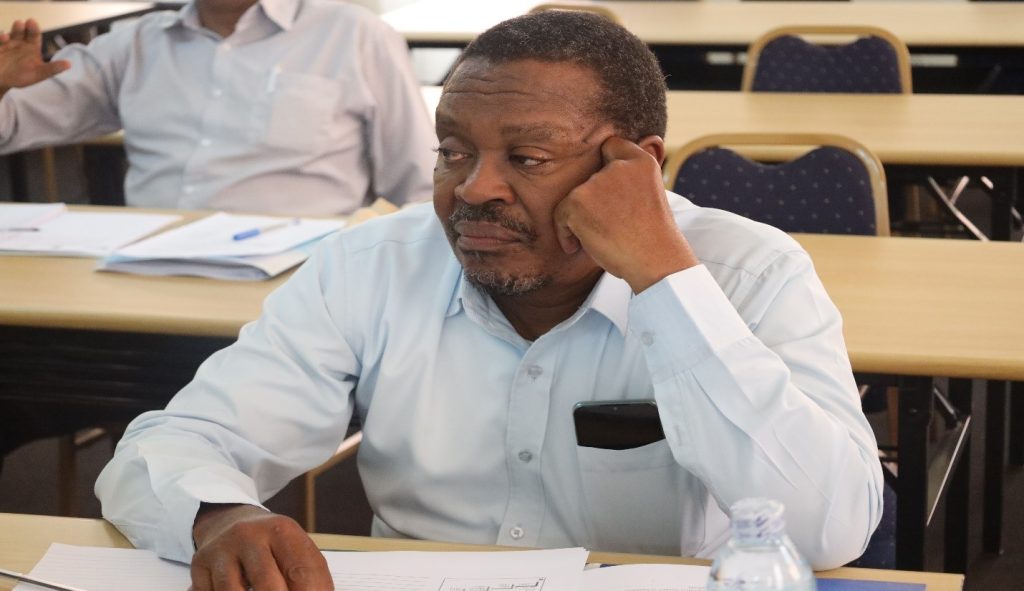
List of REC members
The members of the COBAMS-REC include;
1. Assoc. Prof. Eddie Walakira
2. Dr. Allen Kabagenyi
3. Assoc. Prof. Elizeus Rutebemberwa
4. Dr. Fred Matovu
5. Dr. John Mutenyo
6. Dr. Eng. Robinah Kulabako
7. Dr. Peter Turyakira
8. Assoc. Prof. Juman Kasozi
9. Assoc. Prof. Leonard Atuhaire
10. Dr. Ezati Betty
11. Mr. Martin Muyingo
12. Dr. Ruth Nsibirano
13. Assoc. Prof. Betty Kwagala
14. Dr. Roy Mubuuke
15. Ms. Filder Aryemo
